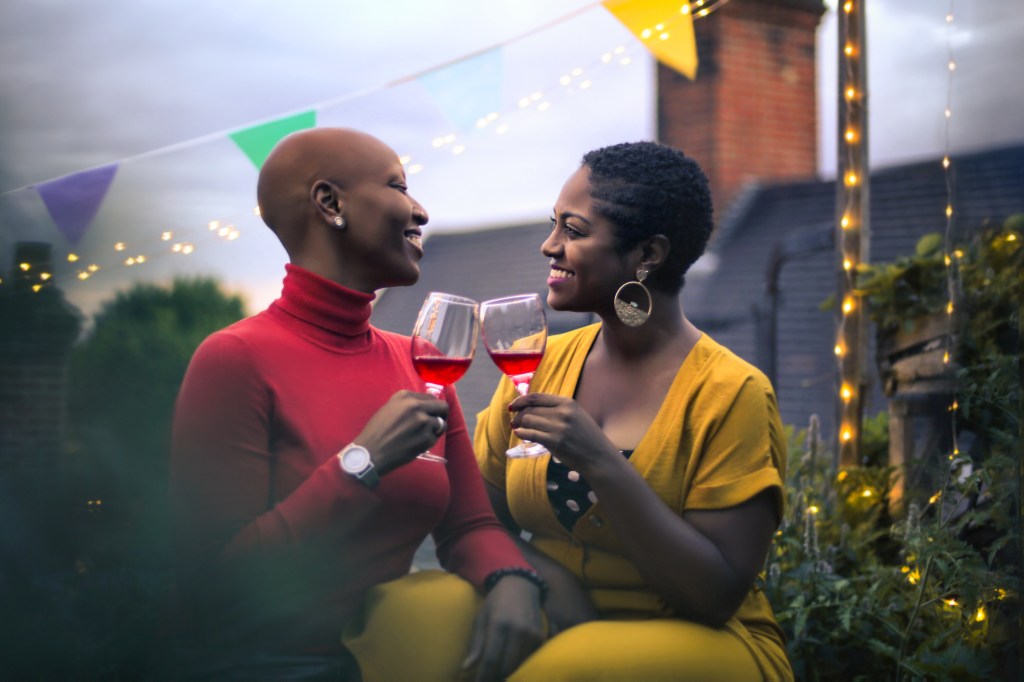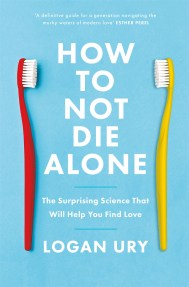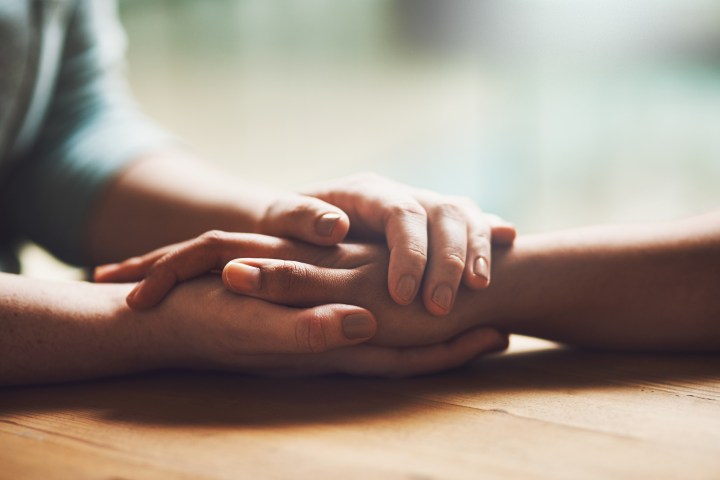How to make dating fun again

In How to Not Die Alone, behavioural scientist turned dating coach Logan Ury draws on years of research to present a practical guide to finding, building and keeping the relationship of your dreams. Spoiler alert – great relationships don’t just appear in our lives: they’re the culmination of a series of decisions, including who to date, how to end it with the wrong person, and when to commit to the right one. And that all starts with behaviour change, which her book will expertly show you how. In this extract from How to Not Die Alone, three of the ‘Ten Steps to Designing Better Dates’ show you how to make dating fun again…
The point of the first date isn’t to decide if you want to marry someone or not. It’s to see if you’re curious about the person, if there’s something about them that makes you feel like you would enjoy spending more time together.
You can design better dates—dates that don’t feel like job interviews—by shifting your mindset and selecting more intentional activities. Here’s how to make dating fun again:
Choose the time and place of the date thoughtfully.
Time and place matter. When do you tend to feel most relaxed and like yourself? Plan your dates in those time slots. No seven a.m. dates, please.
Stop going on dates in well-lit coffee bars. If you’re thinking: If this date sucks, at least I got some caffeine out of it. Don’t. You don’t want your dates to feel like a networking meeting. Choose something sexier, like a candlelit wine bar.
And try sitting next to—rather than across from—your date. Have you ever opened up to someone on a long drive? Or noticed that it feels easier to talk to a friend while walking side by side, when you’re not making direct eye contact? That’s because it’s easier to talk when we’re not looking someone in the eyes. Psychologists Shogo Kajimura and Michio Nomura at Kyoto University in Japan explored this phenomenon in a 2016 study. When participants stared into the eyes of a face on a screen looking at them (as opposed to one looking off to the side), they struggled to complete a simple word-matching game. Kajimura and Nomura attributed that difficulty to biology: Eye contact and processing language rely on the same neural circuitry. You can use this insight to your advantage on dates. Why not suggest going for a walk? This will help the date feel less like a job interview, protect your brain from overloading, and promote connection.
Play.
Think back to the best date you’ve ever had. Perhaps you met up at a tequila bar, ate perfectly cooked carnitas tacos, and sipped spicy margarita after spicy margarita, whispering increasingly flirty things in each other’s ears, until it felt like you were the only people there, which, eventually, you were? Or did you go for a late-night walk, confess your fears about your fraught relationship with your brother, and then have him kiss away your tears, which transitioned to a full-on make-out, pressed up against your door?
What made your best date so great? Probably not the fact that your companion satisfied eight of your top ten criteria for a partner. You probably had fun! And yet fun is rarely something we build into our dates.
Enough with these robotic “press play” dates. Let’s make your dates about play.
What comes to mind when you hear the word “play”? Little kids running around a playground? Maybe you think dating is serious—you want to find a partner yesterday—and you simply don’t have time to play around.
But play isn’t just for kids at recess. And playing isn’t the same as playing games. In fact, it’s the opposite. Playing games involves deceit and misdirection. It’s a waste of time, because your love interest will discover at some point who you really are, and then what? Play, on the other hand, involves being a present, honest version of yourself—just a little lighter.
In an article in the New York Times called “Taking Playtime Seriously,” Catherine Tamis-LeMonda, a professor of psychology at New York University, explained it this way: “Play is not a specific activity, it’s an approach to learning, an engaged, fun, curious way of discovering your world.” Play is intrinsically motivated—that means it’s for its own sake, rather than achieving a goal.
Let’s say you’re on a date in the park. You might play by looking around and coming up with backstories for the people nearby. You could use these improvisational backstories to start analyzing which couples you think will last and which will break up—and why. Or you could run around and see how many dogs you can pet in fifteen minutes.
I understand this approach can feel a bit forced at first. Instead of pretending this is how you usually behave, try being self-deprecating about it: “Hey, this might sound a little strange, but what if we tried . . .” You’ll get points for creativity even if the person declines to participate.
Have fun. Be silly. Make a joke. Humor is a great tool to create a sense of play. When we laugh, our brains release a happy cocktail of hormones, changing our psychology. Laughing releases oxytocin—the same bonding hormone released during breast-feeding—and makes us trust the other person more. (And if it’s oxytocin we’re after, laughing is a more socially appropriate activity on a first date than breast-feeding.) Laughter lowers levels of the stress hormone cortisol, allowing us to relax. Laughter also creates a dopamine hit, activating our brain’s pleasure centers. It reinforces our behaviour and makes us want to go back for more. All good things for a first date: more bonding, less stress, and an improved chance of a second date.
End on a high note.
An artist I know prides himself on always incorporating a happy ending to his dates. (No, not that kind! Get your mind out of the gutter and back into this book!) For example, toward the end of the night, he’ll ask the cryptic question, “Have you ever been to San Francisco’s secret slide?” and, if his date is curious, take them to this romantic, under-the-radar spot. He understands that the end of an experience matters.
In a famous experiment, behavioral economists including Daniel Kahneman compared the experiences of patients undergoing a colonoscopy. (Don’t worry, these were all people who needed this exam, not just psych experiment volunteers.) Some patients endured thirty minutes of unpleasantness, while others experienced thirty minutes of unpleasantness with an additional five minutes of slightly less discomfort tacked onto the end. Perhaps counterintuitively, people preferred the latter experience, even though the whole thing lasted longer. That’s because of a phenomenon called the peak-end rule: When assessing an experience, people judge it based largely on how they felt at the most intense moment and at the end. Their memory isn’t an average of their minute-by-minute experiences.
So order dessert at the end of the meal. Give the other person a meaningful compliment before you head your separate ways. Take advantage of the peak-end rule.
Want to learn more about How to Not Die Alone? Check out Logan’s book!
How to Not Die Alone
by Logan Ury
'A definitive guide for a generation navigating the murky waters of modern love' Esther Perel
'A "must read" for hopeless and hopeful romantics alike' Daniel Gilbert
A funny and practical guide to help you find, build, and keep the relationship of your dreams.
Have you ever looked around and wondered, "Why has everyone found love except me?" You're not the only one. Great relationships don't just appear in our lives - they're the culmination of a series of decisions, including who to date, how to end it with the wrong person, and when to commit to the right one. But our brains often get in the way. We make poor decisions, which thwart us on our quest to find lasting love.
Drawing from years of research, behavioral scientist turned dating coach Logan Ury reveals the hidden forces that cause those mistakes. But awareness on its own doesn't lead to results. You have to actually change your behavior. Ury shows you how.
This book focuses on a different decision in each chapter, incorporating insights from behavioral science, original research, and real-life stories. You'll learn:
- What's holding you back in dating (and how to break the pattern)
- What really matters in a long-term partner (and what really doesn't)
- How to overcome the perils of online dating (and make the apps work for you)
- How to meet more people in real life (while doing activities you love)
- How to make dates fun again (so they stop feeling like job interviews)
- Why "the spark" is a myth (but you'll find love anyway)
This data-driven, step-by-step guide to relationships, complete with hands-on exercises, is designed to transform your life. How to Not Die Alone will help you find, build, and keep the relationship of your dreams.








